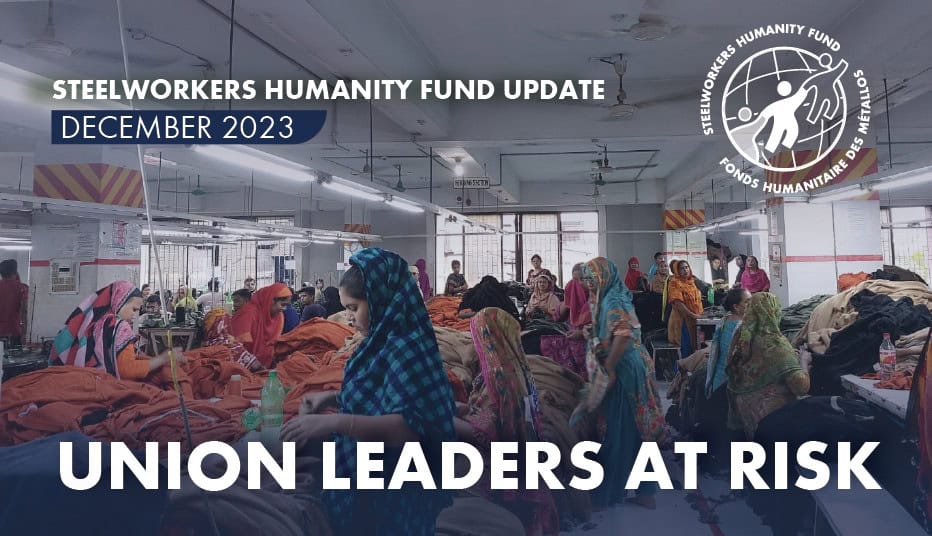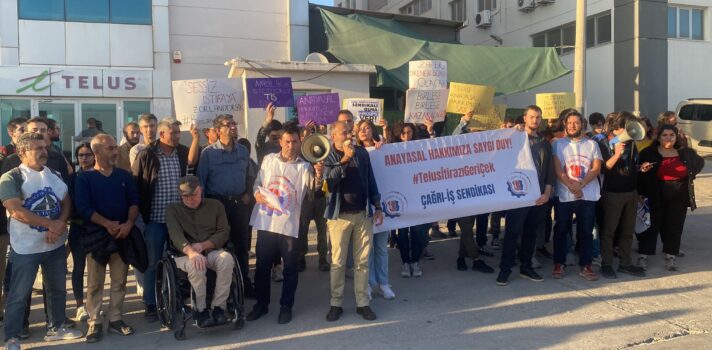UNION LEADERS AT RISK
Organizing a union and fighting for workers’ rights is never easy, but in many countries in the Global South, becoming a leader in the labour movement can put one’s life at risk. Over the past few months, two cases served as stark reminders of this harsh reality, in countries where the Steelworkers Humanity Fund (SHF) supports local partner organizations.
Honduras
Honduras has a proud history of labour activism. In 1954, a general strike challenged the power of the corporations that controlled the profitable banana industry, resulting in the consolidation of unions and labour rights. Unions in Honduras continue to play an important role in fighting for workers against transnationals that build fortunes by keeping wages low, and jobs precarious.
Since then, the garment industry grew to become one of the country’s largest employers. In 2023, SHF staff was on a monitoring trip in Honduras at the time of a massacre that saw 13 people targeted and killed by armed assailants. Among the victims were two union presidents and several members of the union (SITRAGSAM) representing workers employed by Gildan, a multinational garment manufacturer based in Montreal. The company had earlier announced the closure of their factory a few days prior, leaving 2700 workers out of work. The motives of the killers remain unclear.
Bangladesh
In one of the world’s 10 worst countries for working people, trade union activists in the garment industry of Bangladesh face a battle on many fronts. These include movements for safer workplaces and living wages to afford workers and their families a decent life, against high rates of gender-based violence impacting a predominantly female workforce, as well as resisting attacks on workers’ freedom of association and collective bargaining. These multiple struggles are compounded by the fact that many of the country’s high-level politicians have business interests in the garment industry. SHF partners have demonstrated that it is not uncommon for union leaders to face intimidation, harassment, and targeted terminations at the factory level.
This difficult context can be deadly. On June 25, 2023, while seeking to address a wage dispute at the request of workers, union leader Shahidul Islam and three other colleagues were violently attacked by a group of men with alleged connections to the factory owners. While all of them were severely injured, Islam’s injuries were fatal – leaving behind his wife and two children.
As these lines are being written, we are receiving concerning reports of mounting violence on the part of Bangladeshi police and security forces as garment workers demonstrate to demand a minimum wage increase.
In both of these cases, multinational corporations hold considerable power through their supply chains. However, many of these companies spend millions cultivating a brand image, which they would be fearful of seeing tarnished by being associated with human and labour rights abuses. Union members and other concerned people can demand these companies ensure due diligence is followed by all their suppliers and urge the authorities to ensure justice is done and rights are respected.
The Steelworkers Humanity Fund will continue to support workers’ rights organizations globally, amid increasing violence against labour activists and community leaders.
Download
Request this file in a different format
Share on Facebook



